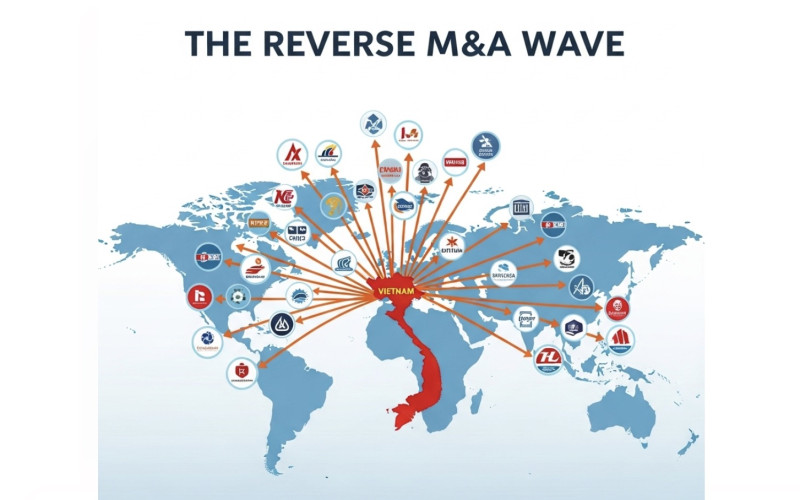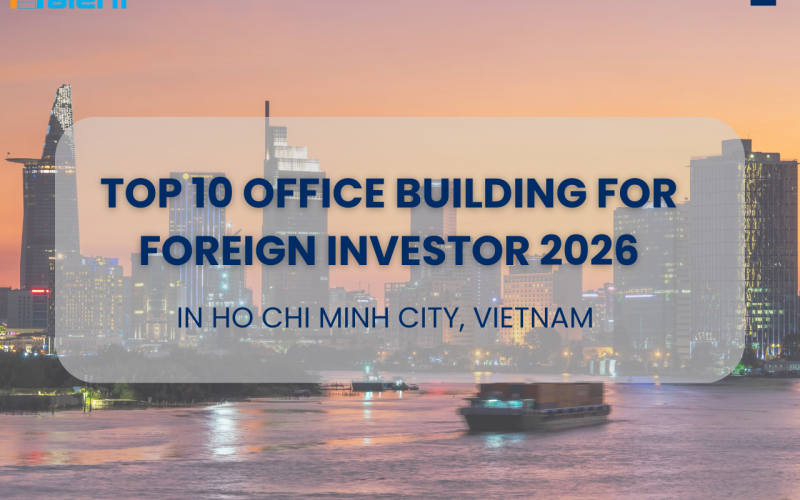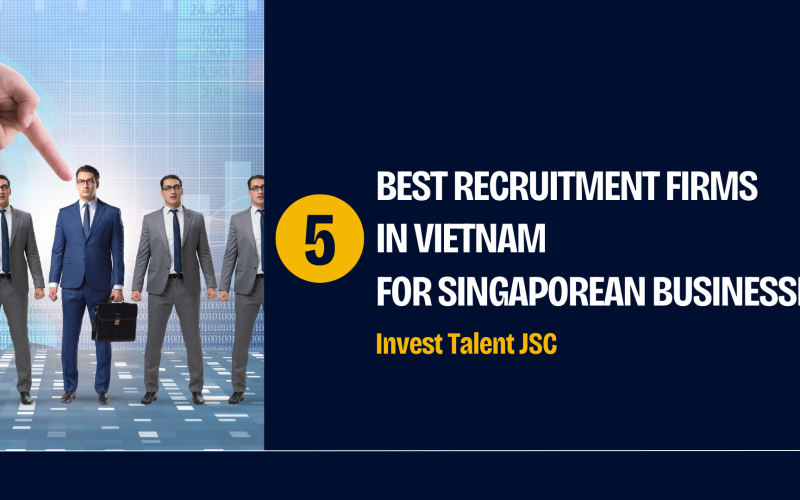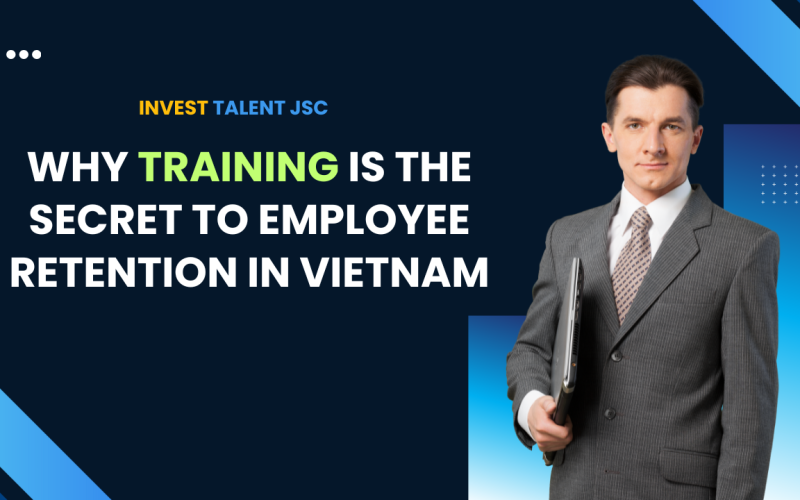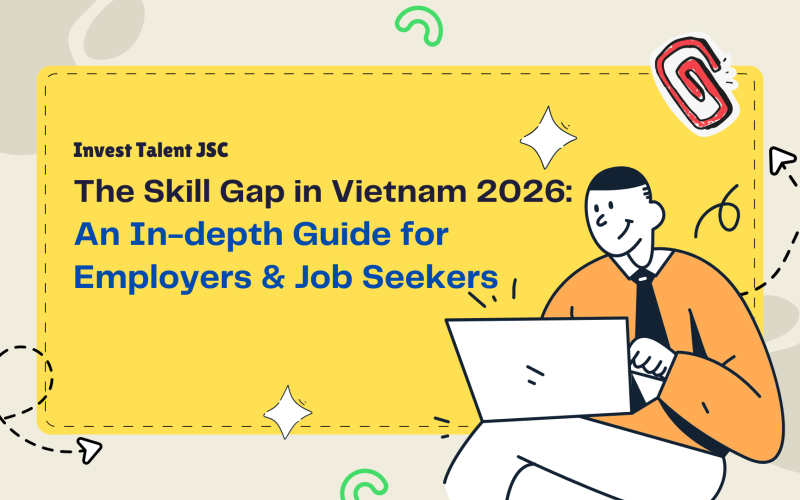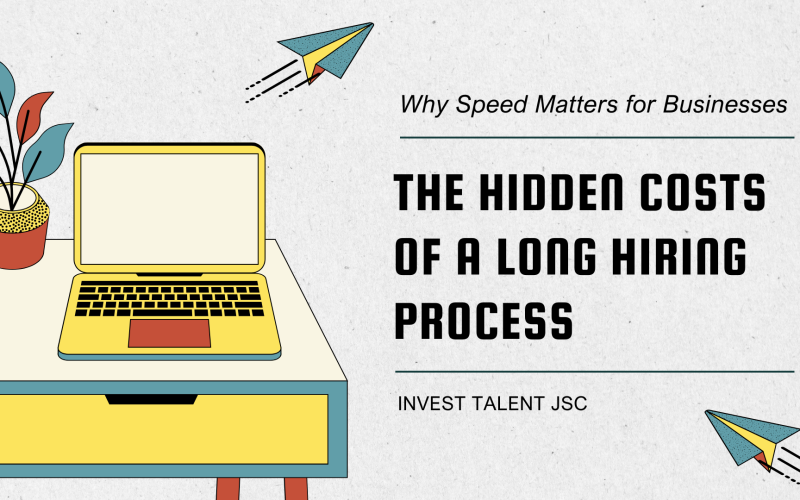Top Concerns for Foreign Employers Entering the Vietnamese Job Market 2026
Discover expert recruitment solutions for foreign companies hiring in Vietnam. Stay compliant, cut costs, and secure top local talent in 2025.
Vietnam has become one of Asia’s most attractive markets for foreign businesses. With a fast-growing economy, young workforce, and competitive labor costs, international companies are expanding here in manufacturing, fintech, IT, logistics, and more.
However, hiring in Vietnam can be challenging for newcomers. Labor laws, payroll compliance, cultural nuances, and talent shortages often slow down recruitment. This guide highlights what foreign employers need to know and how a trusted recruitment partner can simplify the process.
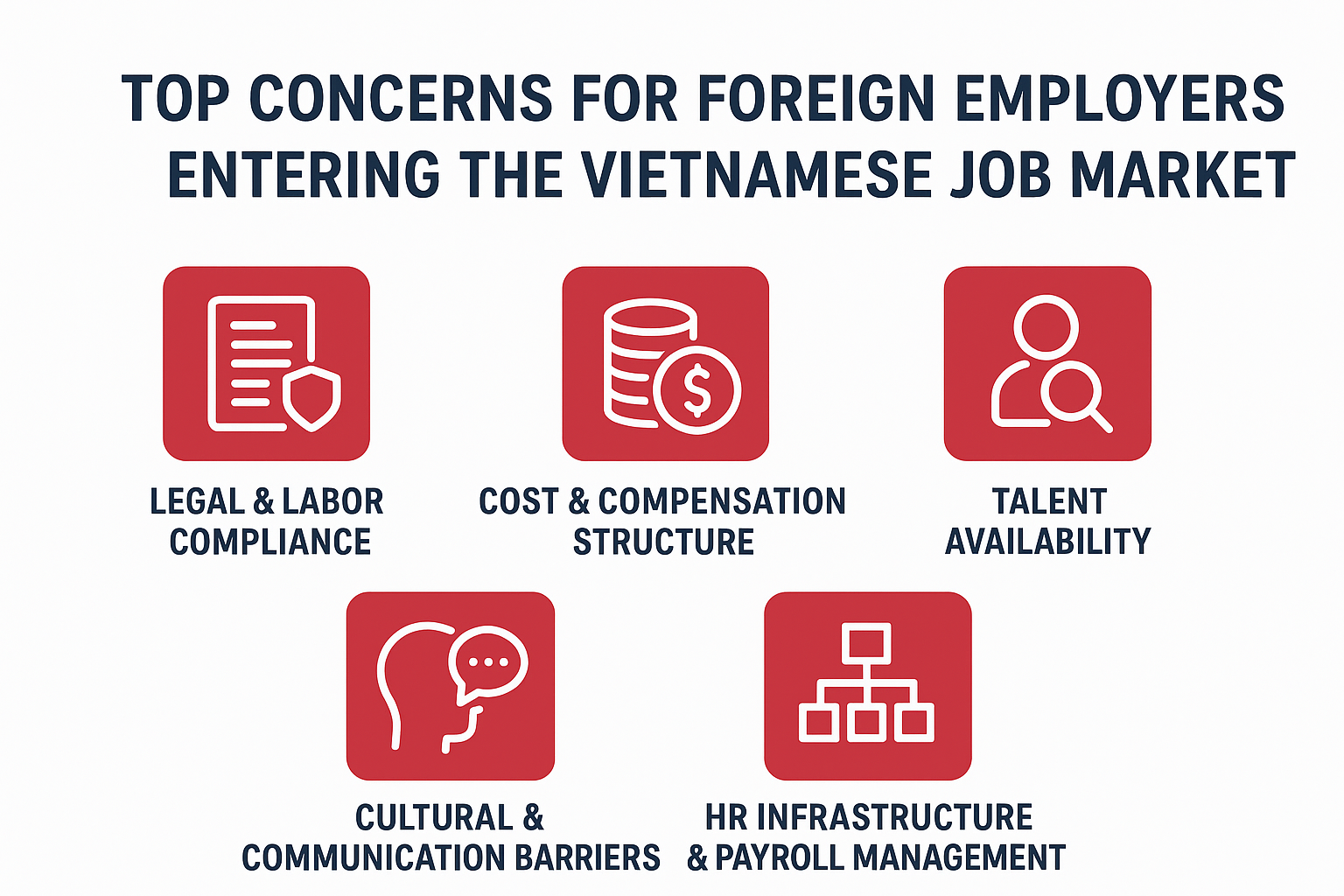
1. Compliance with Vietnamese Labor Law
This is always the top issue for new market entrants.
Key Points
- Employment contracts:
- Must be in Vietnamese (can have bilingual version).
- Probation period: usually up to 60 days for skilled roles; 180 days for managers.
- Notice period: 30 days (fixed-term) or 45 days (indefinite-term).
- Mandatory benefits:
- Social Insurance (SI): 17.5% employer contribution.
- Health Insurance (HI): 3% employer contribution.
- Unemployment Insurance (UI): 1% employer contribution.
- Employee also contributes 10.5% total.
- Personal Income Tax (PIT): progressive up to 35%, employer must withhold monthly.
- Working hours: 48 hrs/week; overtime capped at 40 hrs/month (and up to 300 hrs/year with approval).
- Termination: Strict rules; wrongful termination can result in fines and mandatory compensation.
Why it’s tricky: Many foreign firms underestimate how protective Vietnamese labor law is of employees.
2. Cost of Hiring & Compensation Norms
Typical Market Practices
- 13th month salary (Tết bonus): nearly universal and expected.
- Annual salary increase: 5–15% depending on sector and performance.
- Meal & phone allowances: common, often 500,000 – 1,000,000 VND/month each.
- Health check & insurance top-ups: valued by mid- to senior-level hires.
- Currency: salaries usually paid in VND, even if company books in USD.
Concern: Companies often budget for “base salary” only and get surprised by bonuses, allowances, and mandatory insurances.
3. Talent Availability & Market Competition
- Tech & digital roles: shortage of experienced mid–senior engineers, product managers, data analysts.
- Middle management: high demand in manufacturing, FMCG, logistics.
- English proficiency: improving but not universal; especially limited outside HCMC and Hanoi.
- Job-hopping: common among younger professionals; retention can be challenging.
Implication: Need competitive compensation, career growth, and brand positioning to attract quality talent.
4. Cultural & Workplace Differences
- Hierarchy & communication: employees may be indirect with feedback or disagreements.
- Consensus culture: decision-making can be slower than in Western contexts.
- Face-saving & respect: public criticism is often poorly received.
- Work–life balance: younger workforce values flexible hours and hybrid work.
Challenge: Aligning corporate culture from HQ with local expectations while keeping engagement high.
5. HR Infrastructure & Entity Setup
- Legal entity vs. EOR:
- Setting up a Vietnamese entity (e.g., LLC/RO) is needed to hire directly.
- Without it, companies often use an Employer of Record (EOR) service to employ staff legally.
- Payroll: must be processed in VND through local banks and comply with monthly SI/HI/UI reporting.
- Data privacy: not yet as strict as EU GDPR, but labor data must be securely handled.
Risk: Mismanaging payroll or reporting can lead to penalties or delayed employee payments.
6. Employer Branding & Retention
- Foreign startups or new entrants may be unknown to local candidates.
- Candidates often prefer established brands for job security.
- High turnover risk if compensation and career path aren’t competitive or clear.
Strategy: Offer professional growth plans, clear career ladders, strong onboarding, and visible leadership presence in Vietnam.
Summary Table: Top Concerns of hiring in Vietnam for FDI businesses
| Area | Vietnam-Specific Notes | Why It Matters |
|---|---|---|
| Legal compliance |
|
|
| Total cost of employment |
|
|
| Talent availability |
|
|
| Cultural alignment |
|
|
| HR infrastructure & payroll |
|
|
| Employer branding & retention |
|
|
Practical Tips for Foreign Companies
- Engage a local legal/payroll partner or EOR during the first 6–12 months.
- Budget at least +20–25% over gross salary for mandatory contributions and benefits.
- Localize contracts and make them bilingual.
- Offer 13th-month salary and at least basic allowances to stay competitive.
- Invest early in employer branding (LinkedIn, local job boards, employee stories).
- Train managers on cultural nuances to avoid retention issues.
Hiring in Vietnam offers enormous opportunities for foreign businesses — but also comes with challenges around compliance, costs, and talent competition. By partnering with an experienced recruitment agency, you can minimize risks, reduce hiring time, and focus on growing your business.
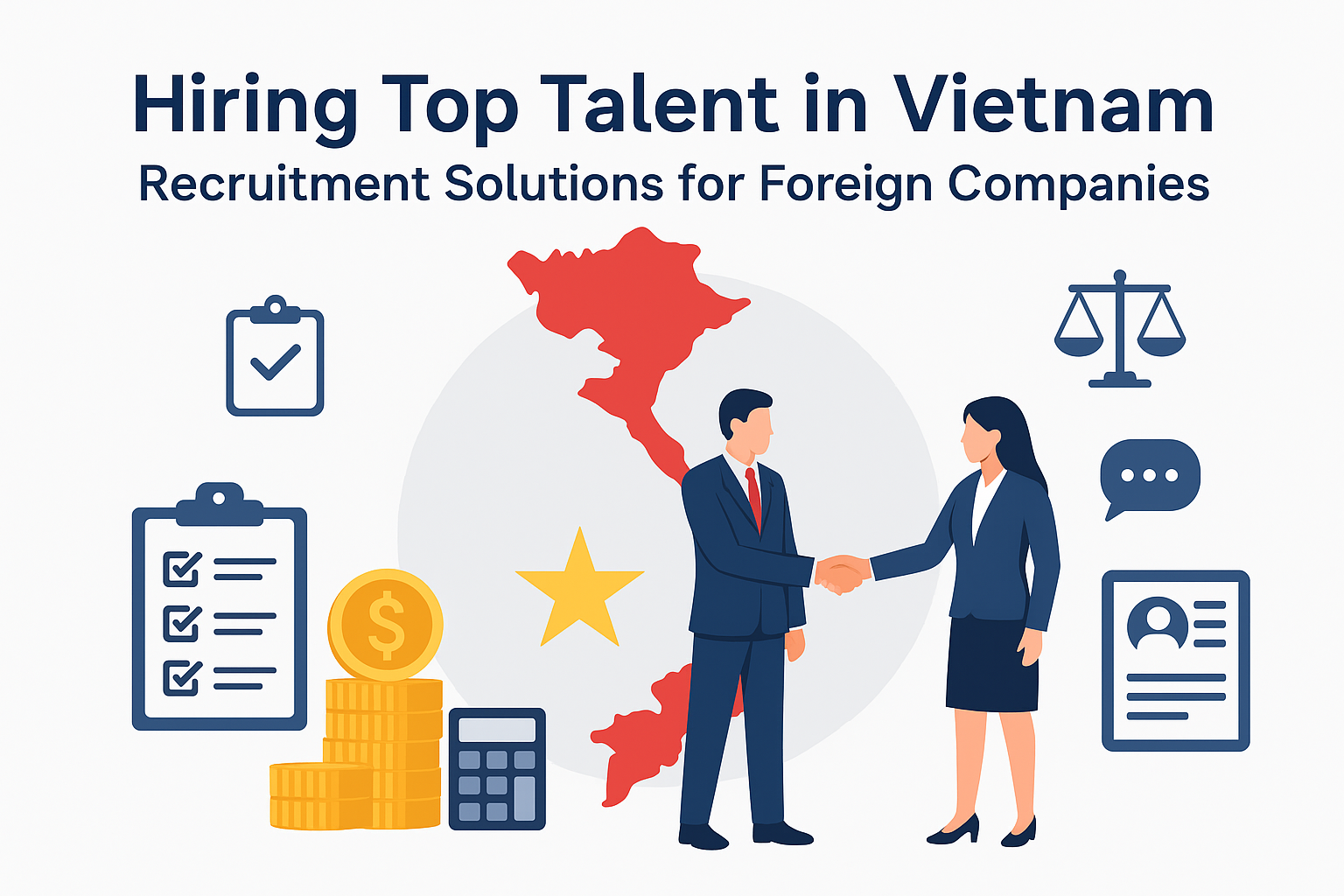
Ready to expand your team in Vietnam? Contact us todayto find the right talent quickly and compliantly.



